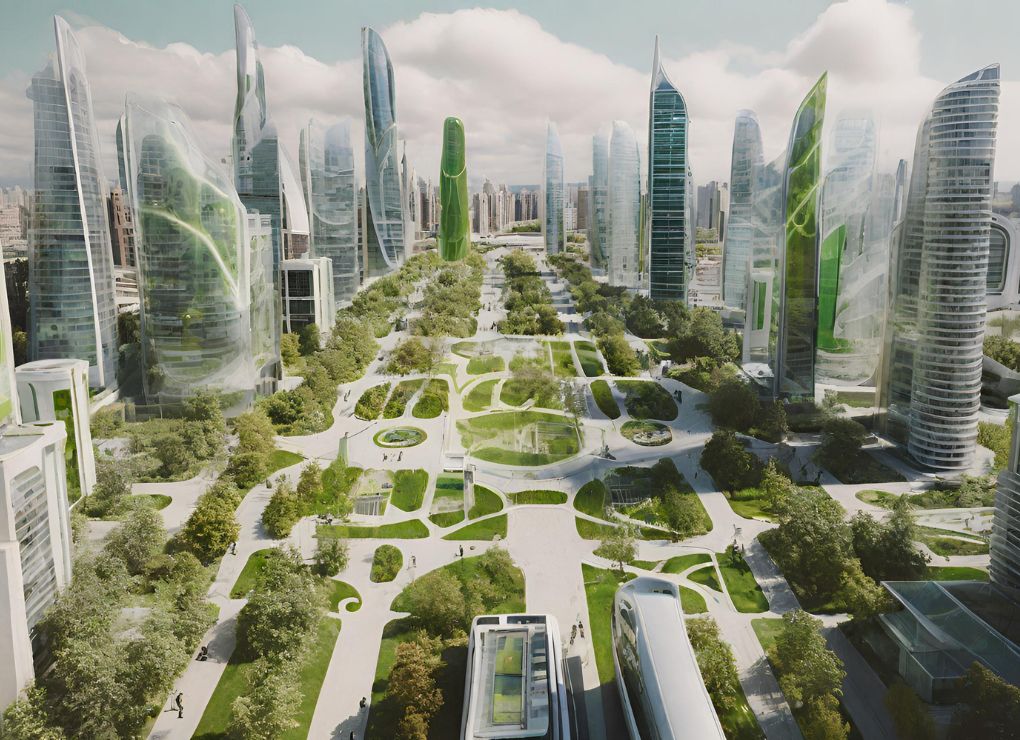
- 27 Sep 2023
In an era where our world is rapidly urbanising, the search for innovative solutions to the pressing challenges of urban living has gained a new sense of urgency. The solution: Smart Cities, a response uniquely tailored to meet the demands of contemporary urbanisation. These cities seamlessly intertwine technology and sustainability at their core, reshaping urban landscapes and forging a pathway towards a greener, more sustainable future for urban residents.
Employing new age technologies to improve the quality of life for their citizens, smart cities create dynamic ecosystems that residents can enjoy, while still maximising resource efficiency.
And while some may perceive smart cities as nothing more than technologically enhanced urban centres, their implications reach far beyond mere technological augmentation.
Consider the management of basic facets of urban life, such as transportation, energy, waste management and other public services. Smart cities use real-time data and sophisticated algorithms to optimise traffic flow, reduce energy consumption through smart grids, implement efficient waste management systems, and deliver public services more effectively. These innovations not only enhance the convenience and comfort of urban living but also contribute to significant reductions in energy consumption, emissions, and waste generation
Embracing Green Technologies
At the heart of smart cities’ sustainability lies the incorporation of green technologies – innovations designed to reduce environmental impact and promote eco-friendly behaviours. These technologies form the cornerstone of resource optimisation and environmental preservation when seamlessly integrated into the fabric of smart cities. The following green technologies have already been integrated into the infrastructure of some of today’s growing smart cities:
1. Renewable Energy Sources
Smart cities embrace renewable energy sources such as solar panels, wind turbines, and hydropower installations. These technologies reduce dependence on fossil fuels, combat greenhouse gas emissions, and contribute significantly to a cleaner and more sustainable energy landscape.
2. Energy-Efficient Buildings
Smart structures equipped with energy-efficient HVAC systems, advanced lighting controls, and superior insulation exemplify the commitment to sustainability. These buildings significantly reduce energy consumption and carbon footprints while enhancing the comfort and well-being of their occupants.
3. Waste Management
Advanced waste management systems are a hallmark of smart cities. These systems include comprehensive recycling programs and innovative waste-to-energy technologies. By minimising landfill use and encouraging recycling, smart cities help reduce the environmental burden of waste disposal.
4. Smart Grids
Intelligent electricity grids are another vital component of smart cities. These grids use real-time data and advanced algorithms to optimise energy distribution, reduce energy losses during transmission, and make power delivery more efficient and reliable. The result is a more sustainable and resilient energy infrastructure.
5. Green Transportation
By prioritising eco-friendly transportation options, smart cities have become leaders in green transportation initiatives. From electric vehicles, and bike-sharing programs, to efficient public transit systems, these initiatives are reducing air pollution and easing traffic congestion, which in turn is improving the overall quality of life for urban residents while promoting sustainability.
6. Urban Farming
Urban farming initiatives are sprouting in smart cities worldwide. Rooftop gardens, vertical farms, and community-based urban agriculture projects are not only promoting local food production but also reducing the environmental impact associated with long-distance food transportation.
Copenhagen's Sustainable Urban Model
When it comes to cities that have effectively incorporated environmentally friendly technologies into their urban landscapes, Copenhagen, Denmark, is a prime example of a successful, eco-friendly smart city. Recognised globally as a smart city to be reckoned with, Copenhagen has consistently secured its place as one of the world’s greenest and most habitable cities, and for good reason.
Denmark’s adoption of renewable energy sources, like wind and solar power make up 50 percent of the country’s energy sources. Committed to clean energy, Copenhagen’s innovative district heating system effectively harnesses surplus heat generated from electricity production and industrial processes to provide heating for homes and businesses. This system not only minimises energy wastage but also helps significantly reduce the city’s carbon footprint.
Further, the city’s bike friendly infrastructure, complete with an extensive network of bicycle lanes and picturesque views makes cycling a core element in the daily lives of most urban residents whilst also serving as a healthy, and sustainable mode of transportation that helps reduce traffic congestion, air pollution, and carbon emissions.
A Greener Future
Smart cities and green technologies are steering us toward a more sustainable urban future. By embracing renewable energy and sustainable practices, smart cities can address pressing environmental challenges while enhancing the well-being of their residents. As urban populations continue to grow worldwide, the integration of green technologies into smart city development will become more imperative than ever to create an efficient, and eco-friendly world. With that said, it is crucial for cities worldwide to adopt similar strategies. This involves dedicating resources and prioritising innovative solutions that lay the foundation for a more sustainable and promising future for the urban residents of tomorrow.
Denmark’s adoption of renewable energy sources, like wind and solar power make up 50 percent of the country’s energy sources. Committed to clean energy, Copenhagen’s innovative district heating system effectively harnesses surplus heat generated from electricity production and industrial processes to provide heating for homes and businesses. This system not only minimises energy wastage but also helps significantly reduce the city’s carbon footprint.
Further, the city’s bike-friendly infrastructure, complete with an extensive network of bicycle lanes and picturesque views makes cycling a core element in the daily lives of most urban residents whilst also serving as a healthy, and sustainable mode of transportation that helps reduce traffic congestion, air pollution, and carbon emissions.